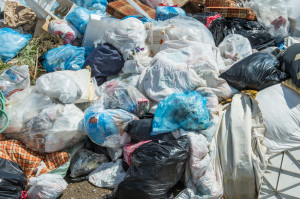It does not take ecological genius to understand why it is important to try and recycle paper. We are all regularly exposed to the problems caused by deforestation, by humble trees and forests being decimated to satisfy the world’s demands for paper materials. If one chooses to dig a little deeper, stories of how local economies that once relied on the forests at their periphery have been effectively destroyed and become destitute due to the loss of their livelihood. We may even be aware of how damaging deforestation is from an environmental point of view. For this reason, the past decade has seen an increased push from those in the know, to try and persuade the general populace to recycle paper more. Recycled paper, we are informed by people who know, is part of the answer to the problem of deforestation. The more that paper is recycled, the less trees have to be cut down afresh – and that is undeniably a good thing.
Yet there is a further reason beyond the very genuine cause of deforestation that makes a compelling case for every person to take it upon themselves to recycle paper. The problems caused by so-called greenhouse gases are a continued reason for what scientists are calling climate change – a change in the heat of the earth which could have devastating effects for the planet and its people. One of the most potent contributors to greenhouse gas is methane; and when paper is put in to a landfill rather than recycled, it bio-degrades. That might sound like a good thing, but the biodegrading process produces methane – and the atmosphere takes the hit.
So by the simple act of recycling any paper you have, you are not only protecting forests and the welfare of local economies – you’re saving the environment, too.

